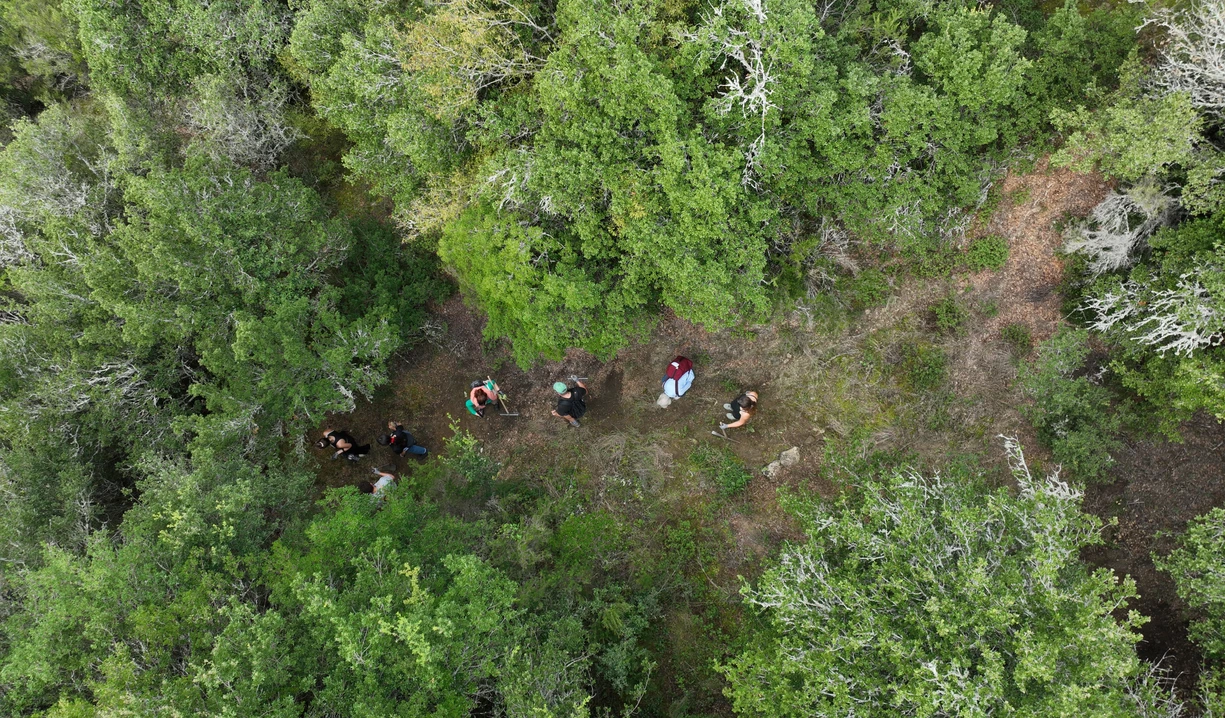Boulouki in Greek means “gaggle”, travelling group, a name evoking the tradition of travelling companies of stone masons and craftsmen. Its aim is to trace and document the living carriers of such traditional knowledge; to study and to further disseminate it through workshops and actual building projects which are organized in collaboration with local communities. Based upon these thematic axes, the group’s course of action includes conducting research, organizing workshops, conferences and cultural events; promoting projects in collaboration with local communities and their stakeholders.
Boulouki has mostly worked in Epirus, a mountainous area of Greece, once celebrated for its stone masons, and also a crossroads for various Balkan cultures. Their aim is to develop a ‘hands-on’ approach of cultural heritage, through the processes of making, repairing and building, to contribute to the study of traditional building techniques as an operative field of knowledge, orientated -apart from conservation and documentation- towards contemporary building practices.
The Autumn School on traditional and sustainable construction explored the connection between traditional building techniques, modern issues on sustainable construction and the reduction of their environmental footprint, through a rich educational programme of seminars, hands-on training, tours and open events focused on public dialogue.
The seminar programme included presentations and lectures, demonstrations and practical tests on the use of natural materials in traditional and sustainable building. Specifically, the seminars addressed various aspects concerning the use of stone, timber, traditional and modern building materials based on limestone and soil. Additionally, the seminars covered various issues related to energy design of historic and new constructions. The Former Primary School of Frasta was transformed into a lab for experimentation and testing. This involved raw material evaluation, preparation of different building materials, as well as the design of ecological proposals and construction solutions for the School’s renovation.
The hands-on part of the workshop focused on continuing the project of shaping the new school's courtyard gate by completing the cobblestone leading to its entrance. Under the guidance of the team members and experienced craftsmen, the 18 participants practised stone cutting, constructed a dry stone cobblestone and applied stone paving using lime mortar. Furthermore, a demonstration of stone quarrying and processing on the river Arachthos was organised, as well as an educational excursion to the region of Tzoumerka for the participants to get acquainted with the natural, architectural and cultural heritage of the place.
Throughout the workshop, several open events took place to encourage active participation from the local community and engage the general public as well. Specifically, a participatory "Midati" was organised, that aimed to clean the old path leading to the School, as well as a guided tour of the settlement and the historic bridge of Plaka. Furthermore, a public dialogue event was held, where representatives of the local authorities, social enterprises, members of the academic community and residents of the region participated. They engaged in discussions exchanging views on the potential for developing social entrepreneurship opportunities and innovation enterprises in the mountain communities of Epirus, with an emphasis on traditional and modern sustainable building.
Part of the open events was also the hybrid Meeting on different “Interpretations on architectural heritage” that was co-organised with the French School of Athens. Guest speakers from Greece and abroad gave lectures on the different aspects of heritage that are often silenced, highlighting the contribution of humanities to a better understanding and interpretation of the built environment.
Overall, the Autumn School was a space for thought and experimentation, emphasising on understanding and application of historical building practices to reduce the environmental footprint of the construction sector, on using raw materials and on landscape management to protect the built and natural environment and the potential for revitalising the country's mountain communities. Simultaneously, the hands-on work contributed to the restoration and renovation of the Former Primary School through educational activities, aiming to transform it into a future "school" for the education, promoting of traditional techniques and sustainable building in Epirus and beyond.
Find more about the project here








